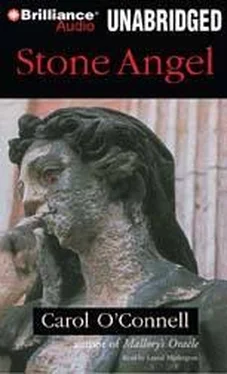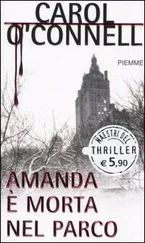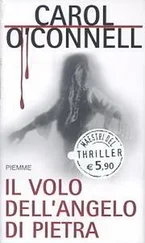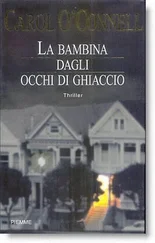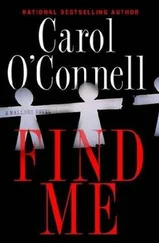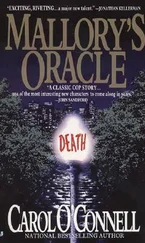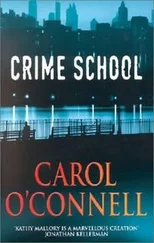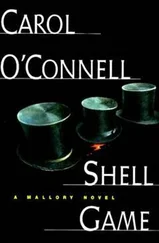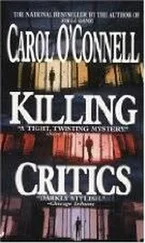Charles glanced at Ira to see how he was reacting to Darlene’s replay of a traumatic day. The boy seemed not to hear them. Charles surmised that Ira was shutting out the noise, not perceiving it as meaningful. His primary thoughts would probably be a cascade of images, not words. The perception of spoken words would require the concentration and effort of discerning a second language. Food was more alluring to Ira just now, but he might be responsive to music, another language more natural to him than the spoken word.
In the spirit of an ongoing examination, he turned to Ira. “Could you hum the tune you were playing on the piano?”
It was his mother who answered, “He won’t hold normal conversations with people anymore. He used to talk a lot when he was a little boy. But now he just repeats things. It’s called echolalia. That’s why he can’t pass the screening test for the program in New Orleans.”
Well, that was reasonable. An advanced program would make a prerequisite of communication skills. Though the echolalia sometimes passed for response to conversation, a kind of shortcut. “Perhaps you could remember the notes?”
“Oh, no,” she said, throwing up her hands in mock helplessness. “I got a tin ear. My boy has all the musical talent in the family. If you sit him down at the piano, he’ll play, but he won’t do requests. Just plays what he wants. And sometimes he’ll sing for you – if he wants to. He has the most beautiful voice you ever heard.” She looked down at her hands and their ruined fingernails. “You think that’s just a mother talking.”
“No, not at all. The sheriff spoke very highly of Ira’s talent.”
She smiled with some embarrassment and hid her hands under the table. “Sometimes, if the windows are open, every living thing in the square stops to listen to my boy when he sings. They just stand there, so still and quiet you’d think they were all in church. And I have seen people cry when Ira’s song is over.”
He could ask for no better corroboration. So the sheriff had given an accurate account of Ira’s gifts, and now Charles was doubly intrigued. This was something very rare, well beyond the odd case of multiple talents in the savant. The gift of song was unrelated to quirks and mysteries in the autistic brain. The origin of autism was unknown; its symptoms developed after birth. But song came from the egg.
Done with his sandwich, Ira stared at his hands and moved them in circles as he rocked back and forth in his chair. Charles knew the young man was using this activity to calm himself, but why? He had not been agitated a moment ago.
Darlene covered Ira’s rolling hands with her own, not touching flesh to flesh, but only threatening contact to get her son’s attention. “What’s wrong, honey?”
“What’s wrong,” said Ira, staring at the door.
Charles and Darlene both turned to see a figure standing in the doorway. It was the man with two faces, the artist of altered states, and he was smiling at Darlene, one hand rising in a greeting.
Her face was rigid as she quickly gathered up her purse and her son and departed with a strained goodbye.
The man engaged Charles’s eyes as Darlene and Ira passed by him. Walking toward the table, he extended his hand. “My name is Malcolm Laurie. But you call me Malcolm.” This was stronger than a suggestion. “May I join you?”
“Of course.” Charles reached out to grasp the proffered hand. “I noticed your resemblance to Babe Laurie.”
“He was my brother.” Malcolm Laurie sat down with a comfortable attitude, as though he were in his own personal dining room.
“My condolences on your loss,” said Charles.
“Thank you, Mr. -?”
“Butler.” He neglected to mention his given name, as he usually did, for he felt the need of polite distance. As Malcolm leaned forward, Charles was mentally backing up, saying, “I understand your brother toured the country as an evangelist.”
“We all did. The road show is a family enterprise.” The winning smile was back. Perhaps the man sensed that this was the face that elicited the most favorable response. “Ever seen a real tent show?”
“Yes, when I was a child – ” Charles stopped himself from mentioning his summer with Maximilhan’s Traveling Magic Show, but he could not have said why. “I expect they’re all gone now. All the evangelists have television shows.”
“Not all of ‘em. Our family still tours with a tent. Bought it off a bankrupt circus when Babe was a little boy.”
“A circus? So it’s one of the great tents?” He had not seen one of those beauties since he was a child. “How big is it?”
“Biggest you’ve ever seen – I guarantee that. It’s going up tomorrow for Babe’s memorial service. No girders – all single shafts and raised with muscle and line. It’s a thing to behold. If you wanna see that tent raising, you’ll have to get out to the fairground early. Round eight in the morning?”
“I’ll be there.” Charles was elated. He would have given anything for this chance. He had never expected to see such a sight again. “Thank you, so much.”
“My pleasure.”
Though it could not be true, Charles had the impression that Malcolm never blinked. His eyes were bright and riveting. Charles felt self-conscious for staring into them. The other man seemed to sense this and pulled back with his body, leaning into the slats of his chair, and perhaps his eyes had pulled back on their brilliance, for now they were merely the color blue.
“I understand you have some business with the prisoner,” said Malcolm.
Was that her name now – the prisoner?
“If she’s a friend of yours, I want you to know I’ve forgiven her for murdering my brother.”
“Jumping the gun, aren’t you? She hasn’t been charged with murder. She’s being held as a material witness.”
And now Charles realized that he had given this man something of significance. It was clear by Malcolm’s surprise.
Charles cast his eyes down. It was surely no great secret he had given away, or the sheriff wouldn’t have mentioned it. However, he had violated Augusta Trebec’s caution not to give any useful information to the opposition, and this man was surely not a supporter of Mallory’s. In an effort to lead the conversation away from her, he said, “I’m not familiar with your religion. Is the New Church close to Baptist?”
“No, you’re confusing your southerners, sir. This part of the map is wall-to-wall Catholics. We tour with the biggest damn crucifix you ever did see. Now that bleeding, twisting torture on the cross, that’s the Catholic stress on His dying for our sins. The Protestants like to see an empty cross as a reminder that He rose again.” Malcolm shook his head in amused reproval. “No passion. Those Protestants are real boring – no offense if that’s your poison.”
“So the New Church is a Catholic sect?”
“I’d say we’re a bit of one thing and another, a little something for everybody. Come see for yourself. Gonna be a big turnout for the show tomorrow night, but I could save you a front-row seat.”
“Thank you, I’d like that. So, exactly what sort of ideology do you practice?”
“Awareness. When you learn to see things as they really are, you can participate in the energy flow. You follow the New Church steps to awareness, and soon you begin to notice that everything that happens to you was meant to happen. Each event, however small, is moving you closer to your destiny.”
Charles recognized the corrupted, reworded prophecy of a hippie philosopher from the early seventies. The original work had been recently appropriated and regurgitated by an ungifted author on the bestseller list.
“I’ve seen the destitute led to riches and the weak led to power.” And now Malcolm shifted to a poor man’s version of Zen from another bestseller. “You don’t even have to work at it. The less you strive, the closer you come to getting what you want – everything you want, and everyone.”
Читать дальше
